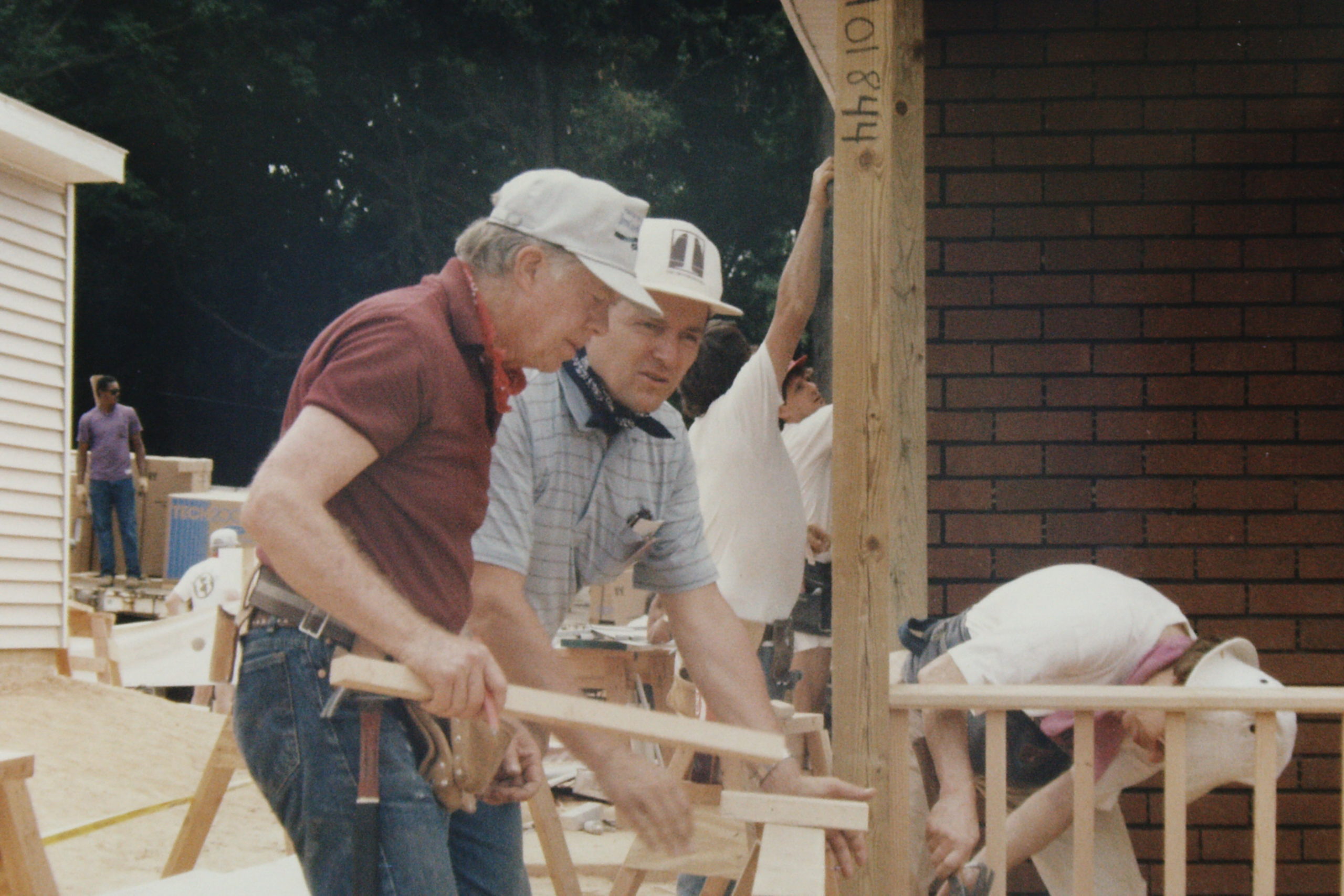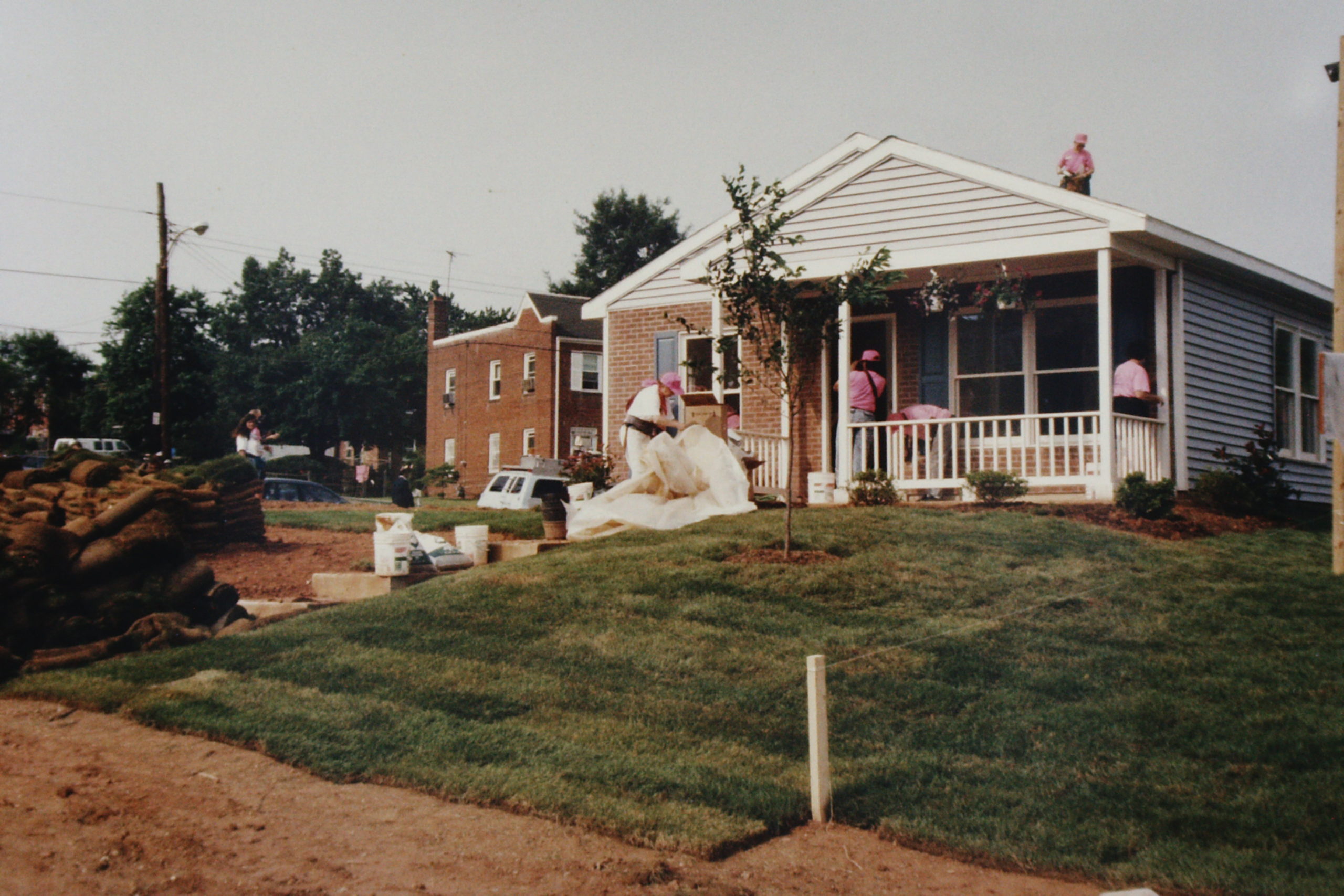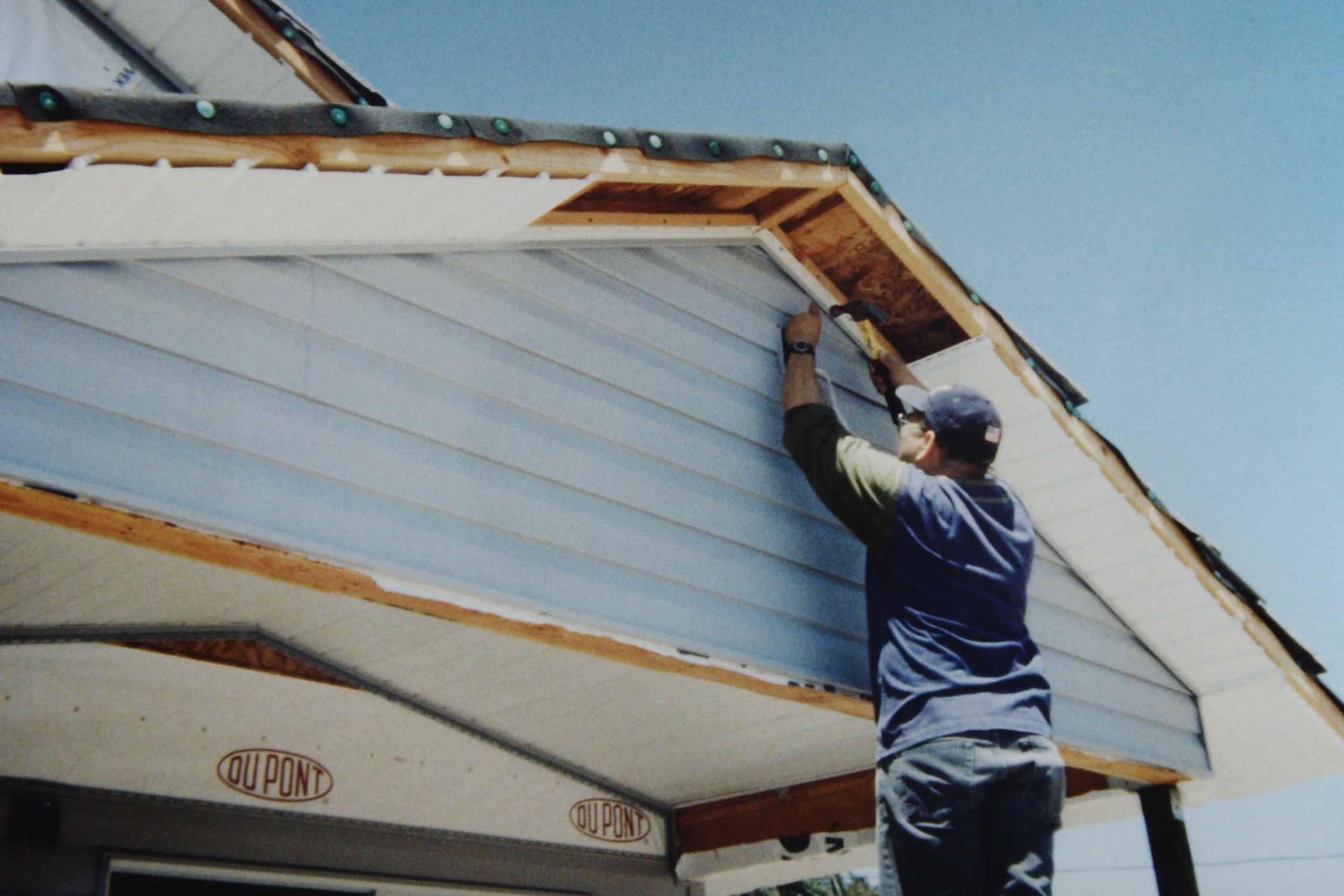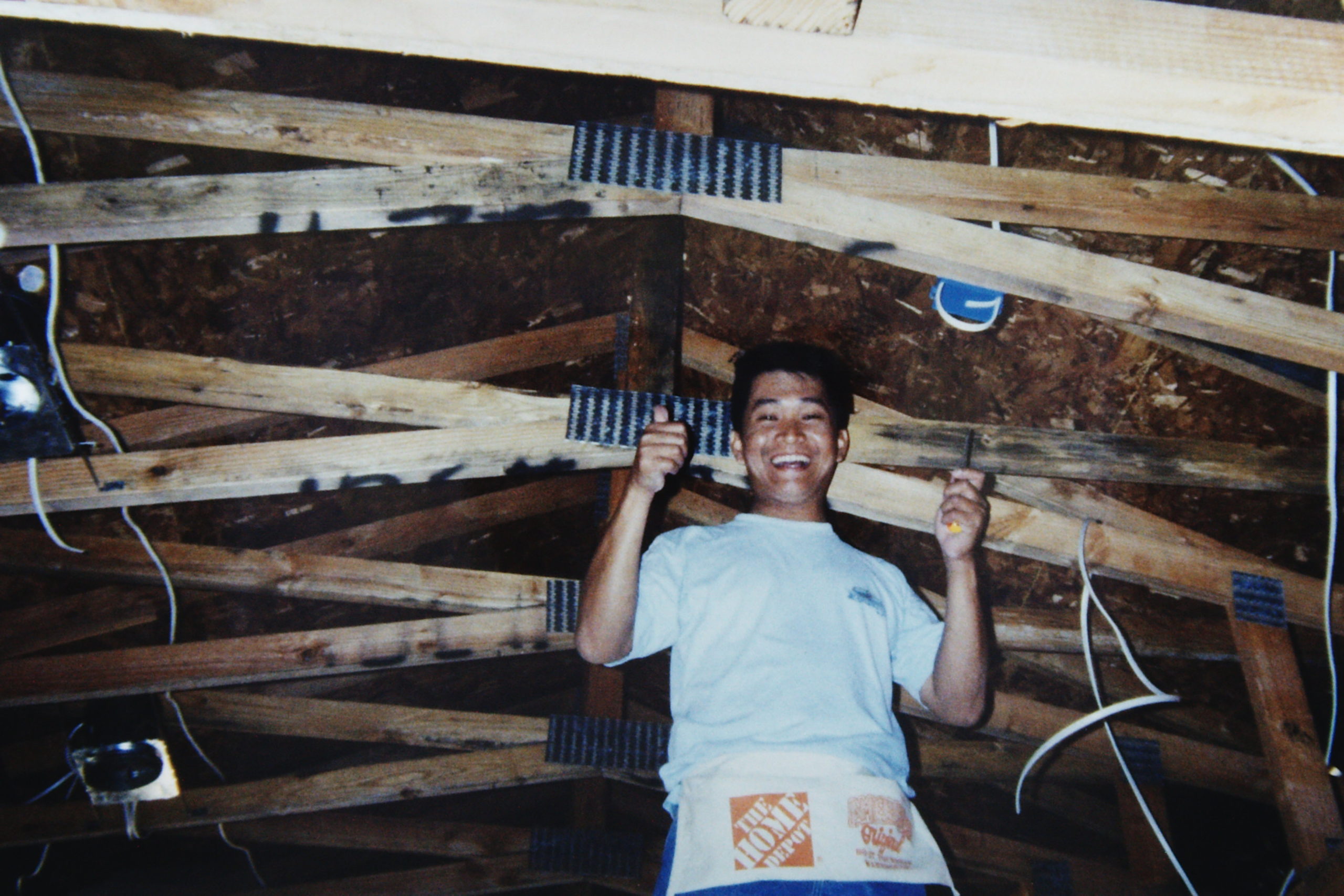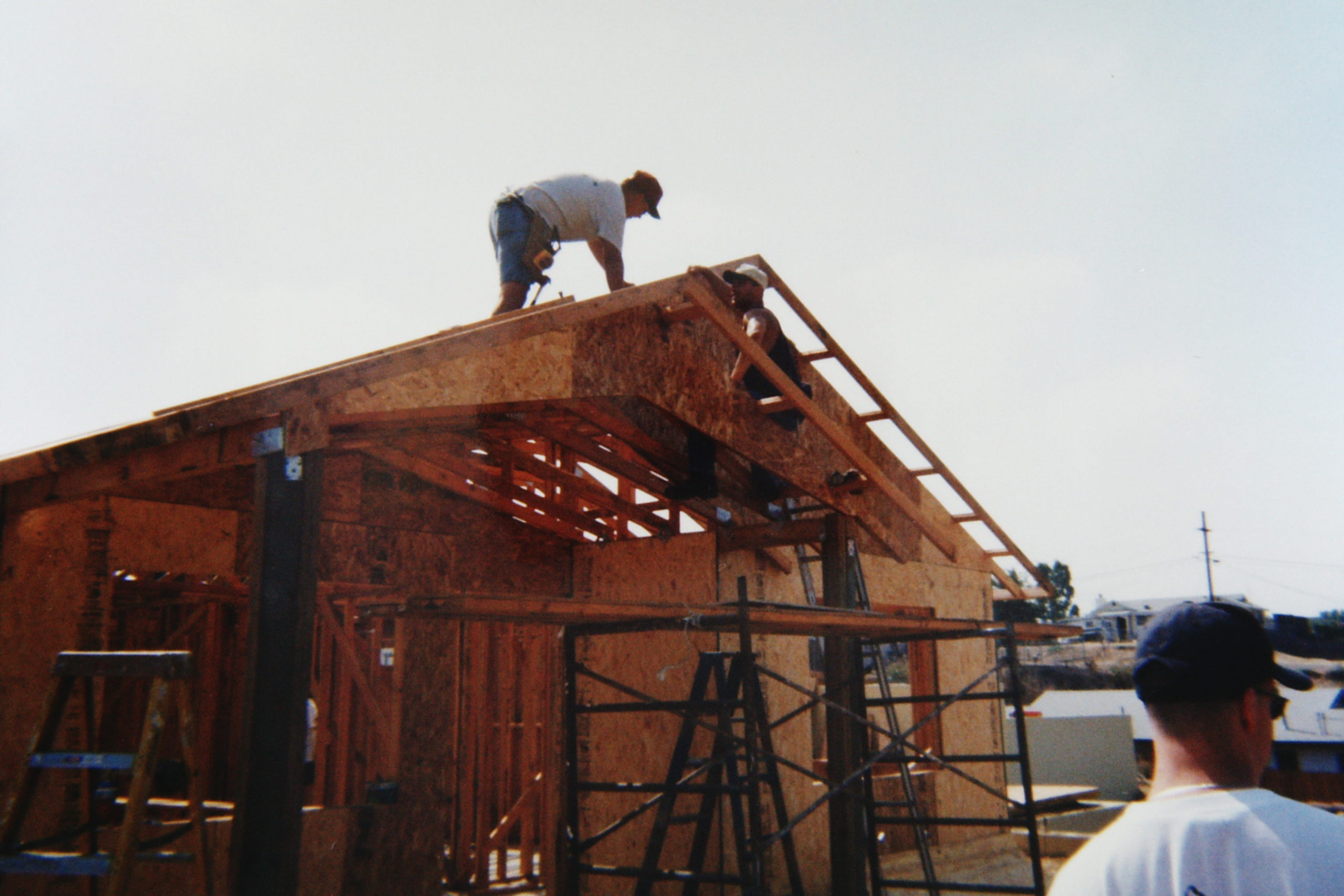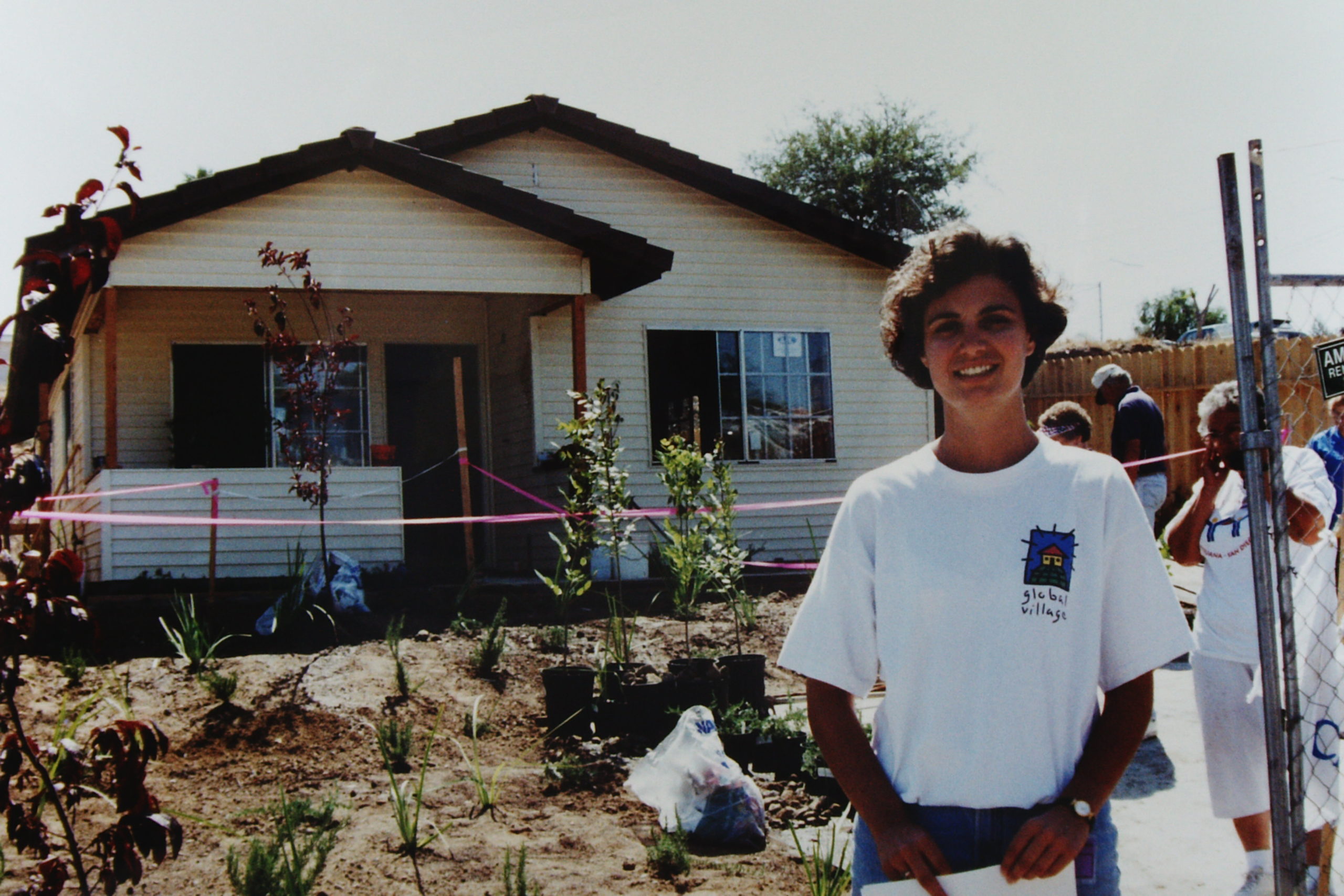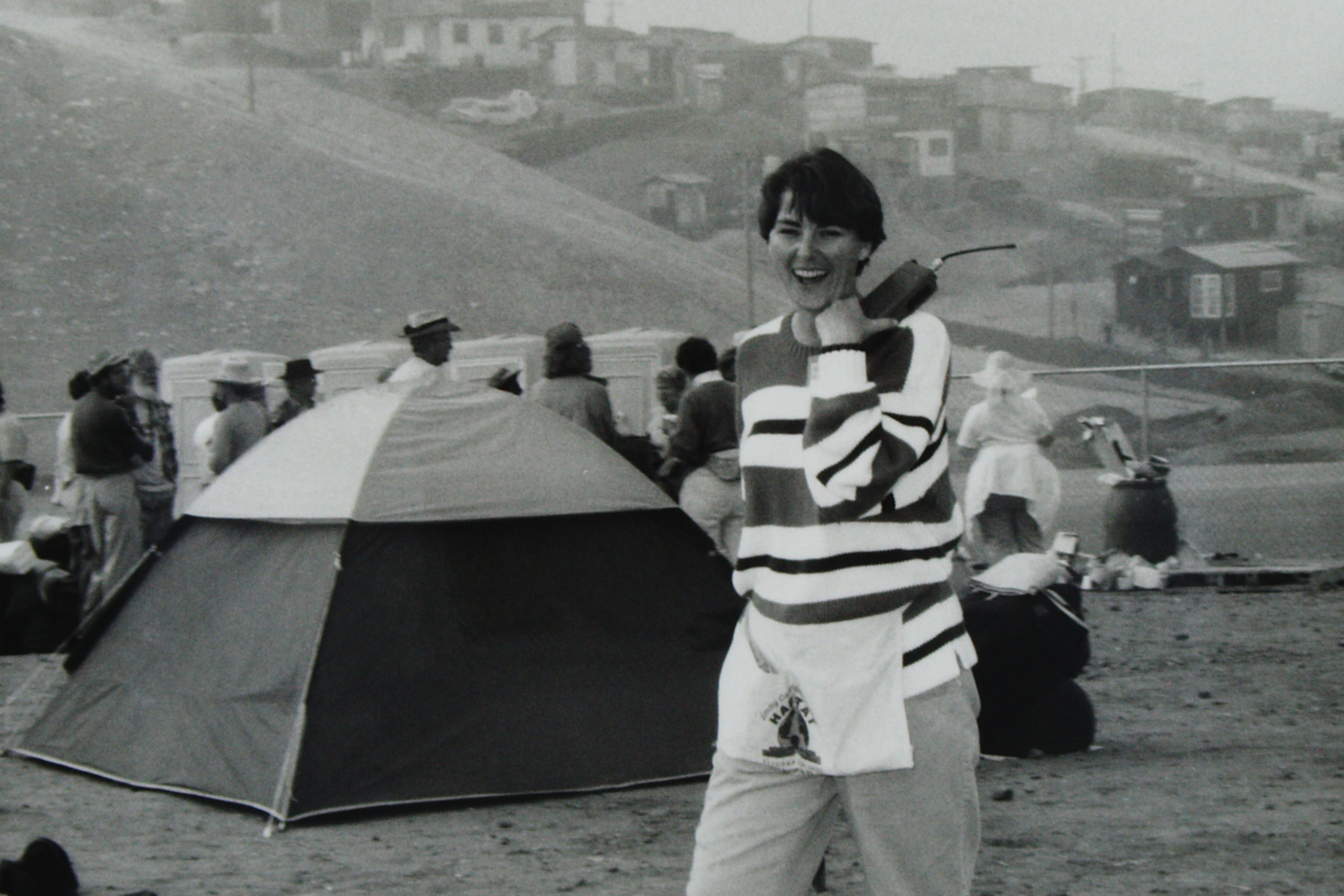We’ve been been building homes and hope in San Diego since 1988.
Habitat for Humanity was founded on the conviction that everyone should have a simple, decent, and affordable home to live in dignity and safety.
Millard Fuller, the founder of Habitat for Humanity, and his wife, Linda, were devoted to a life of service. They lived for a short period at Koinonia Farms in Georgia, where they were exposed to the ideas that formed the basis of Habitat for Humanity — the idea that self-help, respect, and payback of homebuilding costs with no profit was a way to empower families to improve not only their living conditions, but their entire lives. The Fullers officially formed Habitat for Humanity International in 1976.
San Diegans Dennis and Georgia Briscoe befriended the Fullers and became committed to the Habitat concept. When the adult Sunday school class at First United Methodist Church raised $40,000 to help in 1988, the Briscoes founded the Habitat affiliate in San Diego.
A CROSS-BORDER AFFILIATE
San Diego-Tijuana Habitat for Humanity was originally a cross-border affiliate — the only one of its kind in the history of Habitat. In 1990, President Jimmy Carter and his wife, Rosalyn, came to San Diego to help build homes in Mexico and in the United States for the first ever bi-national Jimmy Carter Work Project, a one-week long blitz style build. The Carters and about 3,000 volunteers built 107 homes in the region during the event — 100 in Tijuana and and seven in Encanto (Southeast San Diego).
By the early 1990’s, Habitat for Humanity International was going strong and took over efforts in Mexico, leaving the San Diego affiliate to focus on building in San Diego County — but not before 358 homes were built across the border.
FROM THEN TO NOW
A lot has changed since the beginnings of San Diego Habitat, but one thing remains true — the philosophy of a community coming together to offer empowering support to our neighbors in need of improved housing.
Habitat for Humanity partners with qualifying families to provide solutions to the housing crisis.
We offer a way for families to own or remain in their homes and focus on the things that matter — like education, health, and family.
Our Mission
Seeking to put God’s love into action, San Diego Habitat for Humanity brings people together to build homes, communities, and hope.
Our Vision
A world where everyone has a decent place to live.
Our Values
Promoting shelter, stability, strength, action, and self-reliance.
Habitat’s model creates a cycle of community investment.
We’re putting home mortgage payments to work building more homes.
Habitat provides three distinct services in the homeownership process: home construction, mortgage financing, and mortgage servicing. And, when Habitat homeowners make payments on their affordable mortgage, they are helping to fund the construction of more Habitat homes.
San Diego’s high cost of living had Cesar and Michelle believing their dreams of homeownership were unobtainable. Before purchasing their Habitat home, they were discussing the possibility of moving out of state in search of less expensive housing.
“Owning a home will give us better stability to really set down roots and connect more with our community to affect positive change.”
We strive to be transparent in every aspect of our work.
Decent shelter is something we all need to thrive, but there are some common misconceptions about Habitat and affordable housing that can impede our critical work. Who does Habitat help? How does affordable housing affect my neighborhood? Get the facts about who we are and what we do.
















